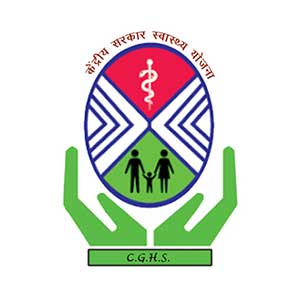On Panel

ECHS
For Indian Patients :

All major Insurance Covered
You are Patient Number
For Today
CGHS

Coming Soon
What is Chronic Kidney Disease?
Chronic kidney disease (CKD) involves the gradual decline of kidney function also called chronic kidney failure, unlike the temporary nature of Acute Kidney Disease. Kidneys filter access fluid in waste from Blood, which is then removed through urine. Advanced chronic kidney disease causes dangerous levels of waste, fluid, and electrolytes to build up in the body.
Chronic Kidney Disease treatment decreases the progress of kidney damage, usually by controlling the main cause. However, kidney disease can lead to end-stage kidney failure, which is fatal.
Book Free Consultation
Causes of Chronic Kidney Disease
CKD (Chronic kidney disease) occurs when impaired kidney functions or damage caused by disease exacerbates over several months or years. Chronic Kidney Disease Ayurvedic Treatment is an alternative to conventional treatment. Conditions and diseases that can cause chronic kidney disease include:
- Diabetes:High blood sugar damages the tiny filters inside your kidneys, which hinders their ability to function properly.
- High blood pressure:Over time, high blood pressure can damage and weaken kidney filters.
- Glomerulonephritis:Inflammation of the tiny filters (glomerulus) inside the kidneys.
- Polycystic kidney disease:Inherited condition causing cyst growth in the kidneys.
- Autoimmune diseases:Lupus and others can target the kidneys.
- Kidney stones:Frequent or recurring stones can damage the kidneys.
- Long-term use of certain medications:Painkillers and antibiotics, if used heavily, can impact kidney function.
Other potential causes:
Symptoms of Chronic Kidney Disease
Patients with chronic kidney disease often experience no symptoms in the early stages. However, as it worsens, symptoms may appear.
- Frequency:Needing to urinate more often, especially at night
- Quantity:Urinating less often or more than usual.
- Appearance:Foamy urine, blood in the urine.
- Fatigue and weakness:Reduced energy and tiredness.
- Swelling:Swelling in hands, feet, ankles, or face due to fluid retention.
- Skin problems:Dry, itchy skin.
- Loss of appetite or unexplained weight loss:Nutritional imbalances due to impaired kidney function.
- High blood pressure:Often associated with CKD and can worsen it.
- Shortness of breath:Fluid buildup in the lungs.
- Trouble concentrating:Waste products affecting brain function.
- Muscle cramps:Electrolyte imbalances.
- Metallic taste in the mouth:Waste products building up in the blood.
Changes in urination:
General symptoms:
Late-stage symptoms:
Who is at a Higher Risk?
Factors that put you at higher risk for chronic kidney disease (CKD).
- Diabetes:High blood sugar damages kidneys over time.
- High blood pressure:blood pressure that is higher than normal and also also called hypertension.
- Heart disease:Reduction in blood flow can impact kidney health.
- Family history:Having relatives with CKD increases your risk.
- Age:Risk generally increases over 60.
- Obesity:Extra weight puts stress on the kidneys.
- Obesity:Extra weight puts stress on the kidneys.
- Smoking:Damages blood vessels and reduces blood flow to kidneys.
- Certain medications:Long-term use of painkillers and antibiotics can be harmful.
- Unhealthy diet:High sodium, low fruits & vegetables, and excessive protein can contribute.
- Dehydration:Not drinking enough water can strain the kidneys.
- Sedentary lifestyle:Lack of exercise can worsen other risk factors.
Underlying health conditions:
Other risk factors:
Lifestyle habits:
How to Diagnose Chronic Kidney Disease?
CKD (Chronic Kidney Disease ) often shows no symptoms and goes unnoticed in its early stages. Diagnosis typically involves two medical approaches:
- Glomerular Filtration Rate (GFR):This blood test measures how well your kidneys filter waste. A GFR below level 60 indicates potential CKD.
- Creatinine level:High creatinine levels can point towards kidney dysfunction.
1. Blood Tests:
- Urinalysis:in this test lab technician looks for blood, pus, or protein, which can indicate kidney issues.
- Urine Albumin-to-Creatinine Ratio (UACR):Measures albumin, a protein that shouldn't be in the urine. Elevated levels suggest kidney damage.
2. Urine Tests:
- Imaging:Ultrasounds, CT scans, or MRIs may be used to visualize your kidneys and check for blockages or structural abnormalities.
- Kidney Biopsy:A small tissue sample is extracted for microscopic examination to pinpoint the specific cause of CKD.
3. Additional Tests:
Complications of Chronic Kidney Disease?
- Fluid overload:Damaged kidneys are unable to remove excess fluids, causing swelling (edema) and high blood pressure.
- Cardiovascular issues:Increased risk of heart attack, stroke, and other cardiovascular issues due to high blood pressure, mineral imbalance, and inflammation.
- Anemia:CKD affects red blood cell production, leading to fatigue, weakness, and shortness of breath.
- Bone disease:Imbalance of calcium and phosphorus weakens bones, increasing fracture risk.
- Nutritional deficiencies:Difficulty absorbing essential nutrients from food.
- Nerve damage:Toxins build up in the blood, harming the nervous system and causing tingling, numbness, and pain.
- Weakened immune system:Increased susceptibility to infections.
Chronic Kidney Disease Ayurvedic Treatment
Chronic Kidney Disease (CKD) poses a significant health challenge to the human body, in medical terms it is characterized by gradual loss of kidney function over time. While conventional treatment focuses on managing symptoms and slowing down disease progression, Ayurveda offers a holistic approach that addresses the root causes of CKD and helps to promote kidney health through herbal remedies, dietary adjustments,and lifestyle modifications.
Ayurvedic Treatment for chronic kidney disease emphasizes restoring balance to the body's doshas (energies) – Vata, Pitta, and Kapha – to alleviate symptoms and enhance overall well-being. This approach involves Ayurvedic treatment plans to each individual's constitution, medical history, and specific CKD stage.
In addition to herbal medicines and dietary changes, lifestyle modifications are important in Ayurvedic Treatment. Practices and exercises like Yoga, Pranayama (breathing exercises), and meditation help reduce stress, improve circulation, and support overall kidney health.
Overall, Ayurvedic Treatment offers a holistic approach to managing Chronic Kidney Disease. By addressing the underlying imbalances in the body and supporting kidney health through herbal remedies and lifestyle adjustments, Ayurveda provides an alternative to conventional CKD Treatment.
Ayurvedic Medicine for Chronic Kidney Disease?
Here are some of the Ayurvedic Herbs and Medicine for Chronic Kidney Disease Treatment:
- Turmeric:This natural herb contains anti-inflammatory properties, which potentially reduce kidney inflammation and protect against further damage in chronic kidney disease (CKD).
- Dandelion Root:Known for its diuretic properties, which promote urine production, help in the elimination of waste products from the body, and support kidney function.
- Astragalus:Used in traditional Chinese medicine for a long time to support kidney health and enhance immune function, potentially beneficial for people with CKD.
- Nettle Leaf:Possesses antioxidant properties that may protect the kidneys from oxidative stress, which contributes to overall kidney health in CKD patients.
- Ginger:Contains anti-inflammatory and antioxidant properties, which potentially reduce inflammation and oxidative stress in the kidneys, which helps in CKD management.
- Cordyceps:Used in traditional medicine for a long time to support kidney function and improve overall vitality, which offers potential benefits for people with CKD.
- Cinnamon:Contains compounds that may help regulate blood sugar levels, which is potentially beneficial for CKD patients managing diabetes-related kidney complications.
- Licorice Root:Contains potential anti-inflammatory and antioxidant properties, which support kidney health and function in people with CKD.
- Ginseng:Known for its adaptogenic properties, ginseng is a popular remedy for various illnesses and may help alleviate stress and support overall kidney health in people with CKD. Ginseng is recommended by doctors in Chronic Kidney Disease Ayurvedic Treatment.
- Hibiscus:Contains compounds that may help lower blood pressure and reduce proteinuria, which offers potential benefits for people with CKD-related hypertension and protein leakage.
Why Choose Karma Ayurveda?
Here's why you should choose Karma Ayurveda for Chronic Kidney Disease Treatment:
- Natural approach:We use herbal remedies and dietary plans rather than conventional medications for CKD Treatment.
- Personalization:We offer individualized treatment plans based on Ayurvedic principles and your past medical history.
- Expert team:We have experienced Ayurvedic doctors and a dedicated team for kidney care.
Frequently Asked Questions
-
How does Karma Ayurveda approach the treatment of chronic kidney disease?
Ayurvedic medicines including Punarnava, Gokshura, and Varuna can help control CKD symptoms. These plants contain diuretic qualities, which can help the body eliminate excess fluid and minimise edema.
-
Can Ayurvedic treatment help in reducing the need for dialysis?
Ayurveda helps by repairing damaged kidney tissues and lowering the need for dialysis. Thus, Ayurvedic drugs have the ability to treat renal failure at any stage of the disease.
-
Can Ayurvedic treatment be combined with conventional medical approaches?
Ayurveda can be utilised in conjunction with other treatments, such as different diets, alternative medicine, and traditional medicine. It has a positive effect on your body.
-
Can Ayurvedic treatment address the root cause of chronic kidney disease?
Ayurveda works on the root cause of the diseases and allows for a better recovery and good health. Ayurvedic treatments help with creating customised treatment plans based on what has been the leading cause of the disease.
-
How often should kidney function tests be done for CKD patients?
They have to be carried out at least annually to enable prompt treatment in the event that renal disease develops early. To prevent early kidney disease from worsening, it is possible and necessary to treat it.
-
Is dialysis the only option for CKD patients?
Chronic kidney disease patients may opt for ayurvedic treatments as they allow for a better recovery by working on the root cause of the diseases. The use of herbal medicines is beneficial in alleviating the symptoms and providing comfort.
-
Are there any natural remedies for CKD?
Ayurvedic treatments for chronic kidney disease can help with some natural remedies along with an active lifestyle to help you with the best of solutions. You must ensure that you follow the advice provided by the ayurvedic kidney experts to get the best outcomes.

Certificate no- AH-2023-0186
JAN 05,2023-JAN 04,2026
"Ayurveda is not just a system of medicine; it's a way of life. Connect with us to embrace a lifestyle that nurtures your body, mind, and soul."
Book Consultation Now